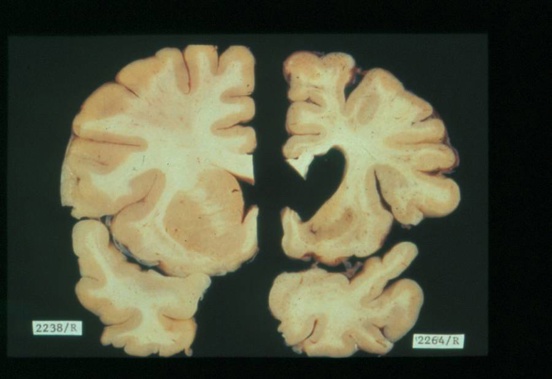
A Kiwi-led research team has identified the first signs of when Huntington's disease affects a brain, potentially opening the door for a ground-breaking treatment of the disease.
As a debilitating neurological disorder, Huntington's has no treatment and can lead to dementia, psychological disturbance and a loss of control over body movements.
The University of Auckland's Centre for Brain Research team publicised their discovery on Tuesday after studying sheep made to be susceptible to the disease.
Results from the five-year study showed the sheep experienced the same increase of the chemical urea in their brains as the post-mortem brains of people who died from Huntington's.
While urea is a naturally-occurring chemical in the body, produced from ammonia, both chemicals are normally excreted because they are toxic to cells.
But in the case of Huntington's, they build up and cause severe neurological symptoms.
"Our findings very clearly point to brain urea and/or ammonia as a therapeutic target for Huntington's disease," Dr Renee Handley from the research team says.
"What gives us hope is that treatments already exist for reducing urea and ammonia in the brain. These could very simply be tested in Huntington's disease, initially using our sheep."
Another member of the research team, Professor Russell Snell, was part of an international team who, in 1993, identified the gene mutation which causes Huntington's.
However, the mutation is known to affect the brain before any outward symptom's of Huntington's are observed.
The current research consequently aimed to identify the first biochemical changes made inside the brain by the mutation.
With researchers successfully able to observe a build-up of urea in the brains of the sheep, which had yet to exhibit outward symptoms of Huntington's, Professor Snell said researchers were already looking at new treatments.
The research - conducted by an international team - was published in the Proceedings of the National Academy of Sciences.
Take your Radio, Podcasts and Music with you









